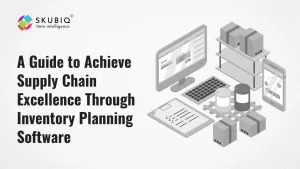Warehouse management is a critical aspect of the supply chain, ensuring the smooth flow of goods from production to the hands of consumers. However, Challenges in Warehouse Management are numerous and can significantly impact efficiency and profitability. In this article, we will explore the top 10 challenges faced in warehouse management and discuss effective strategies to overcome them.
1. Inventory Monitoring System Challenges
One of the primary hurdles in warehouse management is maintaining an efficient Inventory Monitoring System. Inaccurate inventory records can lead to stockouts or overstock situations, affecting customer satisfaction and operational costs. Implementing a robust Inventory Management System is crucial to address this challenge.
To overcome this, businesses should invest in advanced Warehouse Management Systems (WMS) that offer real-time tracking of inventory levels. These systems use technologies such as RFID and barcode scanning to provide accurate data, enabling businesses to make informed decisions about stocking and replenishment.
2. Warehouse Management System Implementation
Implementing a new Warehouse Management System can be a daunting task. It often involves integrating with existing systems, training staff, and overcoming resistance to change. The key to success is meticulous planning and effective communication.
Businesses should conduct thorough research before choosing a WMS and ensure it aligns with their specific needs. Additionally, providing comprehensive training to staff and offering ongoing support during the transition phase can ease the implementation process.
3. Supply Chain Challenges
Warehouse management is intricately linked to the broader supply chain. Supply Chain Challenges such as disruptions, delays, and unpredictability can have a cascading effect on warehouse operations. To mitigate these challenges, businesses should diversify suppliers, adopt predictive analytics, and implement contingency plans.
Utilizing a WMS that integrates with supply chain management tools can enhance visibility across the entire supply chain, enabling quick responses to unforeseen challenges.
4. Picking Process in Warehouse
The picking process is a critical aspect of warehouse operations, influencing order fulfillment speed and accuracy. Inefficient picking processes can result in delays and errors, impacting customer satisfaction. To optimize the Picking Process in Warehouse, businesses can employ technology solutions like voice picking systems and automated guided vehicles (AGVs).
Automation reduces the reliance on manual labor, minimizes errors, and enhances the overall efficiency of the picking process.
5. Automated Warehouse System
While automation can streamline warehouse operations, implementing an Automated Warehouse System comes with its own set of challenges. High upfront costs, technical complexities, and the need for skilled personnel can be barriers to adoption.
To overcome these challenges, businesses can start with phased automation, focusing on specific processes that yield the highest return on investment. Investing in employee training for handling automated systems is also crucial to ensure smooth operations.
6. Employee Resistance to Change
Introducing new technologies or processes often faces resistance from employees accustomed to existing workflows. Overcoming this challenge requires effective change management strategies. Providing clear communication about the benefits of changes, involving employees in the decision-making process, and offering training programs can help alleviate resistance.
7. Stock Management System
An efficient Stock Management System is essential for minimizing excess inventory and avoiding stockouts. Manual stock tracking is prone to errors, and relying solely on it can lead to operational inefficiencies. Implementing a WMS that includes features like real-time stock updates, demand forecasting, and automatic reorder points can significantly enhance stock management.
8. Space Utilization and Layout
Optimizing warehouse space is crucial for efficient operations and cost savings. Poor Space Utilization can lead to congestion, longer travel times, and increased handling costs. Warehouse managers should regularly review and optimize the layout, utilizing vertical space and employing intelligent storage solutions.
Investing in technologies like warehouse execution systems (WES) can help automate space optimization processes, ensuring the most efficient use of available space.
9. Technology Integration
Many warehouses use a variety of technologies for different tasks, and integrating these systems can be a significant challenge. Incompatibility issues, data silos, and communication gaps can arise, hindering the seamless flow of information.
To address this challenge, businesses should prioritize interoperability when selecting new technologies. Choosing systems that can integrate with each other and investing in middleware solutions can facilitate smooth data flow across the warehouse ecosystem.
10. Regulatory Compliance
Adhering to regulatory requirements is a challenge for warehouse managers, especially in industries with stringent regulations. Non-compliance can lead to fines, legal issues, and damage to the reputation of the business.
To overcome regulatory challenges, warehouses should stay informed about industry-specific regulations, invest in training programs for staff, and regularly audit their processes to ensure compliance.
In conclusion, addressing the Challenges in Warehouse Management requires a holistic approach, incorporating advanced technologies, employee training, and strategic planning. By implementing effective solutions and staying adaptable to changes in the industry, businesses can optimize warehouse operations and contribute to a more resilient and efficient supply chain.




